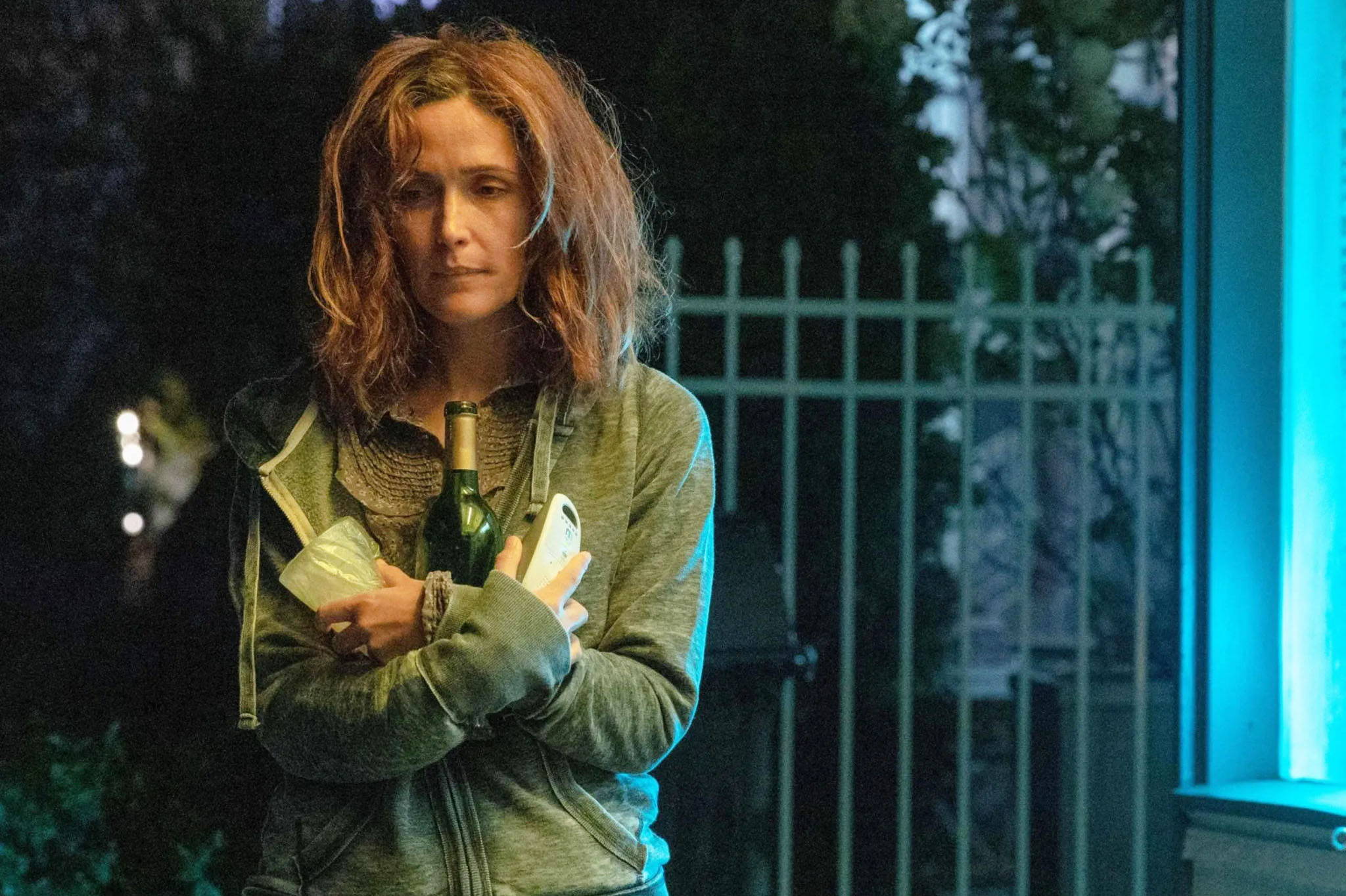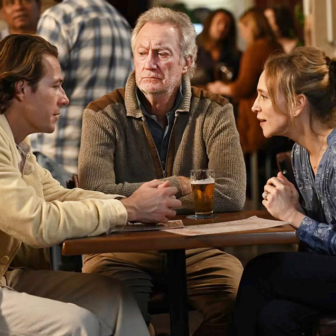Mary Bronstein’s If I Had Legs I’d Kick You begins with the tightest of closeups of one of Rose Byrne’s eyeballs. And that relentless sense of proximity never really lets up; this is a film that rarely gives us breathing space or the respite of distance. It plunges us headlong into the world of a woman perpetually on edge, fretting, frantic, only just functioning in situations that seem about to lurch out of control altogether.
There are harrowing aspects to the film, but there’s also a disconcerting comic element to Byrne’s performance, a kind of desperate gusto and brittle bravado that’s always in play. She see-saws between resentment and self-disgust, righteous fury and rueful self-medication; she tries to manage and negotiate and ends up exploding.
Linda’s life is a mixture of routine and chaos. She has much to juggle: a worryingly sick child, a husband whose work involves prolonged absences, a job as a therapist she is performing on autopilot. Early in the film, there’s a new challenge: the family’s apartment is flooded and the ceiling in one room collapses, leaving a gaping hole. She and her daughter move into a motel while it is being fixed.
Writer-director Bronstein keeps Linda at the centre of the film in several ways. It’s not just the commitment of Byrne’s performance or cinematographer Christopher Messina’s focus on her constant, barely perceptible shifts in expression. Another element keeps us in Linda’s world, an auditory emphasis that amplifies her perspective.
Bronstein makes a fascinating choice about how to depict the central, seemingly intractable crisis of Linda’s life. Her daughter (Delaney Quinn), whose name we never learn, has an unspecified illness that has led her to refuse to eat and become dependent on a feeding tube. We don’t see her clearly; she’s forever out of the frame. But we hear her voice. It’s a disconcerting effect, almost as if Linda can’t look at her, or the child is haunting her mother.
Linda’s husband Charles (Christian Slater) is absent for a long stretch of the film, but he’s a regular presence on the phone: we hear him calling to check up on things in a way that frustrates and annoys her. He represents reproach, underlining her sense of failure.
At times Linda simply refuses to hear. Her job as a therapist involves listening to her patients, but in several sessions we can see she’s barely paying attention. She seems at least to register the desperation of Caroline (Danielle Macdonald), a new mother, full of anxiety about her young son, unable to be separated from him for a moment yet convinced she won’t be able to care for him. But Linda doesn’t appear to recognise quite how desperate she is.
Deadlines, ultimatums and decisions accumulate as Linda maintains combative, abrasive relationships with everyone from the doctor in charge of her child’s therapy to a hospital parking attendant to the receptionist at the motel.
Bronstein spends time on two relationships that potentially offer Linda some support. She has regular therapy sessions with a colleague (Conan O’Brien), who perceives her unravelling but stays “professional” in a way that always cuts her off. She forms a temporary alliance with James (A$AP Rocky), who works at the motel and is the most relaxed person in her orbit. But there’s something particularly careless about the way she interacts with him.
There is much that is tactile and concrete in If I Had Legs I’d Kick You, notably Byrne’s performance. There are moments of blistering black comedy and wry humour; there are also instances of hallucinatory strangeness, when it feels as if anything could happen.
The hole in the ceiling becomes a kind of obsession well beyond the disruption it causes. It is as if for Linda it represents an answer, a symbol, a nightmare, a gaping wound, an insoluble trauma. It’s related, presumably, to something she is also fixated on: her conviction that her daughter needs to free herself of her feeding tube.
Motherhood and its demands and expectations loom over everything. As tension and crisis build, Linda is stretched almost to breaking point. Much in the way of uncertainty and ambiguity is embedded in the fabric of the film, and If I Had Legs I’d Kick You leaves us without anything as definitive as a conclusion.
Bronstein doesn’t demonise her central character, but she doesn’t downplay her destructive and self-destructive aspects either. She isn’t going to bail Linda out or let the audience off the hook, but nor is she going to abandon her. She seems to be aiming to leave us suspended: not for Linda or against her, but aware of her struggle, there with her in the thick of it all. •




